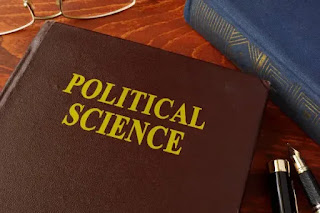Political science is an academic discipline that explores the theory and practice of politics, government, and public policy. It examines the structures, processes, and behavior of political systems at the local, national, and international levels. Political scientists analyze the distribution of power, decision-making, and the interactions between various actors in the political arena.
Key aspects of political science include:
Government and Political Institutions: Political science studies different forms of government, such as democracies, monarchies, and authoritarian regimes, along with the functions and roles of political institutions like legislatures, executives, and judiciaries.
Political Theory: Political theorists analyze the philosophical ideas and principles that underpin political systems and ideologies. They explore concepts like justice, liberty, equality, and legitimacy.
International Relations: This subfield of political science focuses on the interactions between states, international organizations, and non-state actors in the global arena. It examines issues such as diplomacy, conflict resolution, and international cooperation.
Comparative Politics: Comparative politics involves the study of different political systems, governments, and political behaviors across countries. It aims to identify patterns, similarities, and differences between political regimes and institutions.
Public Policy and Administration: Political scientists analyze public policies, the processes of policy-making, and the implementation of government decisions. They assess the impact of policies on society and evaluate their effectiveness.
Political Behavior: This area explores how individuals and groups participate in politics, including voting behavior, public opinion, political communication, and social movements.
Political Parties and Elections: Political scientists study the organization and functions of political parties and the electoral processes through which leaders and representatives are chosen.
Comparative Political Economy: This subfield examines the relationship between political and economic systems, including the role of government in regulating the economy and addressing economic issues.
Public Opinion and Media: Political science analyzes the role of media in shaping public opinion, political communication strategies, and the effects of media coverage on political outcomes.
Political Development and Change: Researchers explore the processes of political development and change, including democratization, regime transitions, and political stability.
Political Philosophy: Political philosophy deals with fundamental questions about the nature of politics, governance, and the role of the state in society.
Policy Analysis: Political scientists engage in policy analysis, providing evidence-based evaluations of proposed policies and their potential impacts.
Public Choice Theory: Public choice theory applies economic principles to the study of political decision-making. It examines how individual actors, such as voters, politicians, and bureaucrats, pursue their self-interests within the political process.
Political Culture: Political culture refers to the shared beliefs, values, norms, and symbols that shape a society's attitudes towards politics and governance. It influences political behavior and the functioning of political institutions.
Political Communication: This area focuses on the processes of communication in politics, including the role of mass media, political rhetoric, and political advertising in shaping public opinion and political outcomes.
Power and Influence: Political science investigates the distribution of power and the mechanisms through which individuals and groups exercise influence over political decisions and policies.
Political Sociology: Political sociology examines the relationship between political systems and society, studying issues such as social movements, political participation, and the impact of social factors on political behavior.
Political Geography: Political geography explores the spatial distribution of political systems, boundaries, and territorial arrangements, as well as the influence of geography on political outcomes.
Political Ethics: Political ethics addresses questions about moral principles in politics, including ethical behavior by politicians, issues of corruption, and the use of power for the greater good.
Global Governance: Global governance examines how international organizations, treaties, and agreements coordinate actions among nations to address global challenges, such as climate change, trade, and security.
Comparative Public Administration: This subfield compares the organization and functioning of public administrations in different countries, considering their efficiency, transparency, and accountability.
Security Studies: Security studies analyze the threats and challenges to national and international security, including issues related to military strategy, terrorism, and conflict resolution.
Political Economy of Development: This area investigates the relationship between politics and economic development, exploring how political factors influence economic growth, poverty reduction, and social welfare.
Environmental Politics: Environmental politics explores how political actors, governments, and international organizations address environmental issues and sustainable development.
Political Movements and Revolutions: Political science studies the origins, dynamics, and outcomes of social and political movements, as well as the causes and consequences of revolutions.
Game Theory: Game theory is applied in political science to analyze strategic interactions between decision-makers, such as states engaged in negotiations or political actors in electoral campaigns.
Political science remains a diverse and dynamic field, continually evolving to address new challenges and questions in the ever-changing political landscape. Researchers and policymakers rely on political science to gain insights into the complexities of political systems, informing policy choices and contributing to the advancement of democratic governance and global cooperation.
Visit Our Award Nomination: https://x-i.me/GGwW
Facebook : https://www.facebook.com/kaylee.rowan.92
Twitter : https://twitter.com/ScienceInventi1
Pinterest : https://in.pinterest.com/scienceinventions/.....
Blog : https://newscienceinventions2020.blogspot.com/
Tumblr : https://kayleerowan.tumblr.com.....
Linkedin : https://www.linkedin.com/feed/...


No comments:
Post a Comment